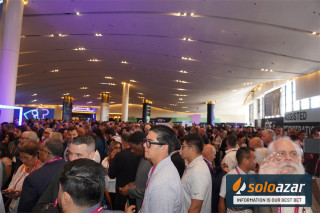California signs two tribal-state gaming compacts
2 minutos de lectura
(California).- California signed two new gaming compacts with the Middletown Rancheria of Pomo Indians of California, and the Redding Rancheria.

The two native american groups are allowed to operate up to two gaming facilities each on eligible Indian lands for Nevada-style games, slot machines, electronic games of chance, and many banked card games like blackjack. The Tribes would retain the right to acquire more lands for future expansion and negotiate for amendments to authorize gaming on those lands.
The Tribes would be entitled to operate up to a total of 1,200 gaming devices and offer off-track wagering on horse races at a satellite wagering facility.
The Tribes would be entitled to operate up to a total of 1,200 gaming devices and offer off-track wagering on horse races at a satellite wagering facility.
According to the report of PlayCA: “Tribal casinos do not pay taxes like commercial casinos. In California, tribal members who live on the reservation are not subject to state income tax, and tribal casinos do not have to pay corporate income tax. Instead of paying tax, the casinos pay fees into various funds and in some cases help support state and/or local agencies and programs. The amount they pay depends on how much revenue the casinos generate as well as the number of slot machines they operate. Each tribal-state compact determines the precise terms of the tribes’ payments and where those payments go.”
The two newest compacts signed provide for contributions to The Revenue Sharing Trust Fund, the Special Distribution Trust Fund and “The Tribal Nation Grant Fund” created by the Legislature to make discretionary distribution of funds to Non-Gaming Tribes and Limited-Gaming Tribes upon application of such tribes for purposes related to effective self-governance, self-determined community, and economic development.
Still, California’s 85 Tribal casinos generate almost $20 billion for state and local economies, $1.3 billion in revenue-sharing to the state and local governments and 125,000 jobs for Californians.
Prop 27 which would have allowed licensed tribes or gambling companies to offer online sports betting on mobile devices to people 21 years of age and older was voted down by California residents on Nov. 8, 2022.
By Ria Roebuck Joseph
Categoría:Gaming
Tags: casinos,
País: United States
Región: North America
Event
G2E - Las Vegas 2025
06 de October 2025
CT Interactive on Innovation, Networking, and Market Growth at G2E 2025
(Las Vegas, SoloAzar Exclusive).- The global gaming industry marked G2E’s 25th anniversary with a major gathering in Las Vegas. CT Interactive stood out for its innovative product development and international growth strategy. Account Manager LATAM at CT Interactive, Roberto Muñoz, shared insights on G2E’s importance, emerging trends, and the company’s collaborative expansion efforts.
Thursday 30 Oct 2025 / 12:00
Atlaslive Explored the Future of Gaming in Latin America at Recent G2E 2025
(Las Vegas, SoloAzar Exclusive).- Bruno Almeida, Head of Sales LATAM at Atlaslive, attended G2E for the first time to explore how land-based and online gaming are converging. His experience highlighted key trends shaping the Latin American market, from immersive casino innovations to strategic networking and regulatory insights.
Monday 27 Oct 2025 / 12:00
G2E 2025: Cristian Galarza, ASAP Director Explains the Importance of Attending the Event
(Las Vegas, SoloAzar Exclusive). - After attending the 25th anniversary edition of G2E in Las Vegas, ASAP’s director shares his perspective on the evolution of the industry, driven by digitalization, efficiency, and the creation of international networks that foster new business opportunities.
Tuesday 28 Oct 2025 / 12:00
SUSCRIBIRSE
Para suscribirse a nuestro newsletter, complete sus datos
Reciba todo el contenido más reciente en su correo electrónico varias veces al mes.



























